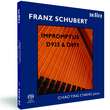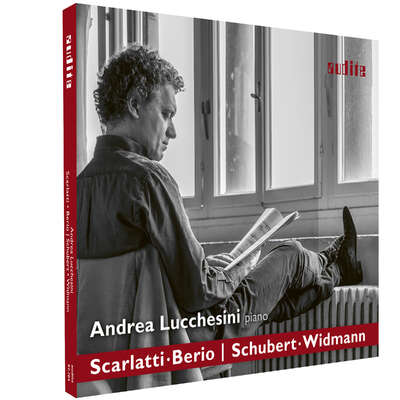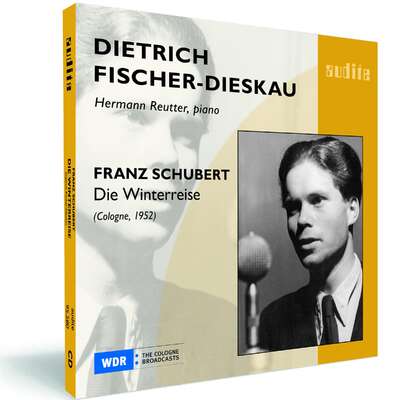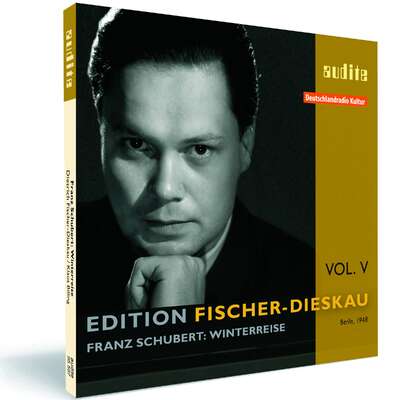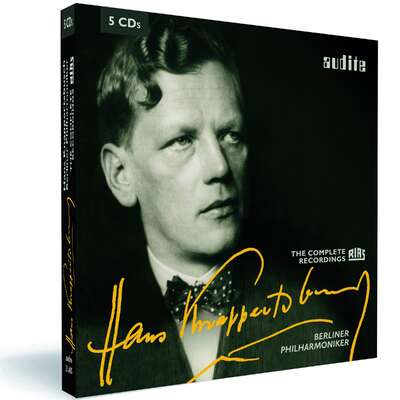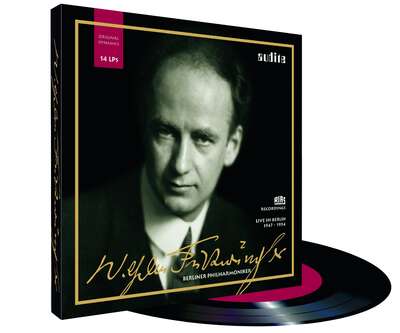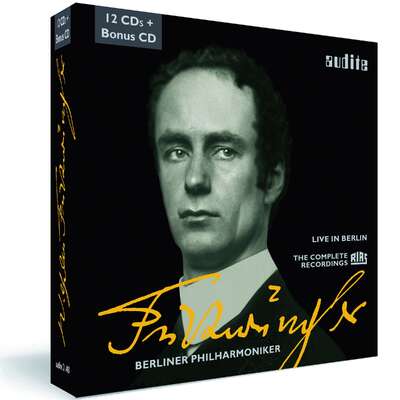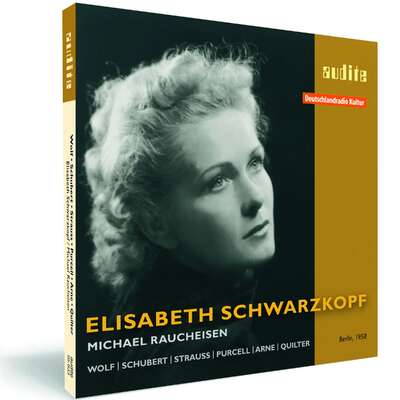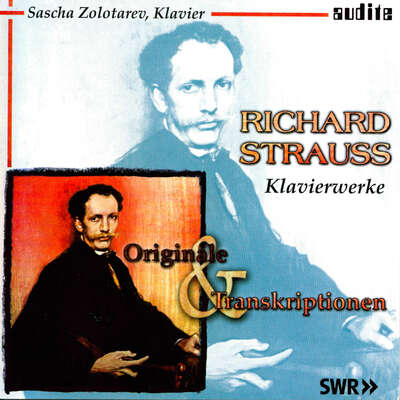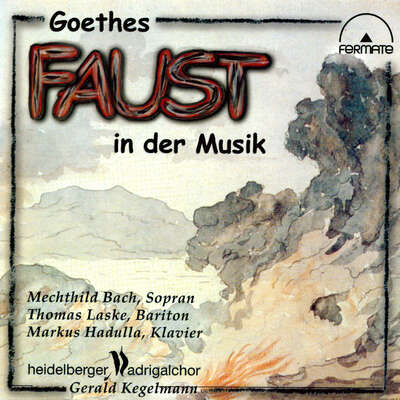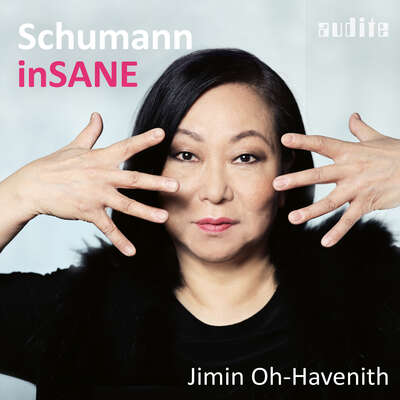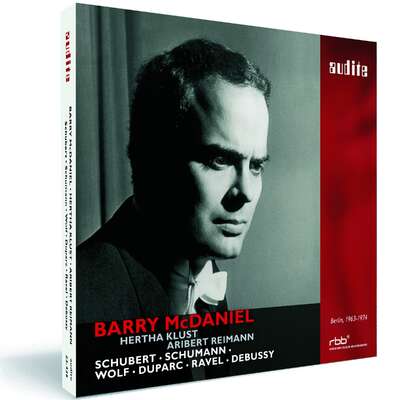
Still underestimated around 1900 as the sociable, unassuming, light-hearted composer of dances and art songs, the common image of Schubert was changed by thinkers and interpreters such as Theodor W. Adorno and Alfred Brendel after the Second World War. Now Schubert’s torn character was...more
"Chiao Ying Changs schlichte, aber seelenvolle Lesart der Impromptus D 935 und 899 mag überraschen und faszinieren. Dabei treibt sie in Agogik und Tempo unentwegt eine zarte Kraft, die zum Zuhören und Mitgehen zwingt." (Piano News)
Details
| Franz Schubert: Impromptus D 935 & D 899 | |
| article number: | 92.514 |
|---|---|
| EAN barcode: | 4022143925145 |
| price group: | ACX |
| release date: | 1. May 2005 |
| total time: | 65 min. |
Informationen
Still underestimated around 1900 as the sociable, unassuming, light-hearted composer of dances and art songs, the common image of Schubert was changed by thinkers and interpreters such as Theodor W. Adorno and Alfred Brendel after the Second World War. Now Schubert’s torn character was discovered, as well as his self-destructive complexes and struggles with Metternich’s repressive politics. Many fragments and sketches make clear just how hard Schubert fought for his independence from the father-figure of Beethoven. Schubert’s Impromptus are also to be classified in this connection. They were not composed as fantasies or improvisations, as the name might imply; rather, Schubert doubtlessly sought alternatives to Beethoven’s type of sonata with these works.
His Impromptus, D. 899 were written in 1827. They open with a reserved march with variations; as a contrast, there follows a sparkling perpetuum mobile with a strikingly marked middle section. The third piece produces a dream-like atmosphere with its arpeggios out of broken chords and the finale is an Allegro scherzando with downwardly swooping cascades of notes requiring considerable technical elegance from the pianist.
Schubert composed his Impromptus, D. 935 during the same year. The beginning is notable for its abrupt contrasts, impetuous dynamics and forward-pressing movement, only absorbed and cushioned by the following Impromptu in A-flat major. This is one of Schubert’s best-loved works, with its easily remembered song-like melody. The third piece adapts the theme from the incidental music to Rosamunde in five contrasting variations; Schubert had also used this theme in the String Quartet in A minor. The finale is a dance-like tune ending with a furious stretta.
The Taiwan-born Chiao Ying Chang was already winning international prizes during her student years in London. She won the Royal Academy Prize in 1998 and 1999, second prize at the International AXA Competition in Dublin in the year 2000 and a special award at the World Piano Competition. Chiao Ying Chang has performed with important orchestras such as the National Irish Symphony Orchestra, the National Orchestra of Taiwan and the San Francisco Symphony Orchestra. She has undertaken concert tours in Taiwan, England, Ireland, the USA, Germany and Italy.
Reviews
Audiophile Audition | November 2005 | Gary Lemco | November 15, 2005
Stylish readings of familiar Schubert works by Taiwan pianist<br /> <br /> The youngMehr lesen
The young
www.ClassicsToday.com | November 2005 | Jed Distler | November 9, 2005
In Schubert's oft-recorded Impromptus, young Taiwanese pianist Chiao-YingMehr lesen
Pizzicato | 11/2005 | Guy Wagner | November 1, 2005
Und noch eine CD mit den Impromptus, diesmal im SACD-Verfahren: Eine herrliche Aufnahmetechnik liefert eine pianistische und klangliche Präsenz, wieMehr lesen
Die Frage ist aber berechtigt, ob ihre Art an Schuberts Impromptus heranzugehen, diesen acht wunderbaren Stücken ganz gerecht wird. Mag sein, dass die junge Interpretin einfach jeder Emphase aus dem Wege gehen wollte, mag sein, dass sie sich ausschließlich auf eine möglichst fein abgestimmte, natürlich sangbare und selbstverständlich anmutende Wiedergabe festlegen wollte, aber so schön und subtil ihr Spiel auch sein mag, dahinter bleiben Welten an Tiefgründigkeit verborgen.
Die acht Stücke, – genau wie die Drei Klavierstücke D. 946 von Mai 1828 –, stellen eine persönliche Suche Schuberts nach neuen Musik- und Ausdrucksformen dar, und diese Suche ist es denn auch eine konsequente und sich stets vertiefende, von der ersten Reihe der Impromptus, die im Sommer-Herbst 1827 entstanden, hin zur zweiten von Dezember 1827 (Schubert hatte kein Jahr mehr zu leben). Verwunderlich ist daher, dass Chiao Ying Chang, gegen jede Logik einer Integrale, diese zweite Folge zuerst vorstellt.
Zugleich wurden diese kurzen Stücke, das längste dauert keine 12 Minuten, zum Konzentrat von Schuberts Seelenzuständen, doch gerade davon merkt man hier kaum etwas. Das schlichte, fast schon cool anmutende Spiel zwingt zwar durch seine innere Konzentration zum Hinhören, weil es die Einfachheit derart weit treibt, allerdings nur, wenn man – wie Curzon, Zimerman, Perahia, Pires, Buchbinder – den inneren Emotionsreichtum bloßlegt, wird ersichtlich, dass Schubert hier einen der tiefsten Ausdrücke seines Seelenzustand offen legt, und der ist von Trauer und Todesahnung geprägt.
www.musikansich.de | Oktober 2005 | Sven Kerkhoff | October 1, 2005 Dekorativ
Den nachhaltigsten Eindruck hinterlässt bei dieser SACD das Klangbild: BeiMehr lesen
Piano News | Juli/August 2005 | Helmut Peters | June 27, 2005
Bei aller romantischen Überladung der Schubert’schen Klaviermusik imMehr lesen
